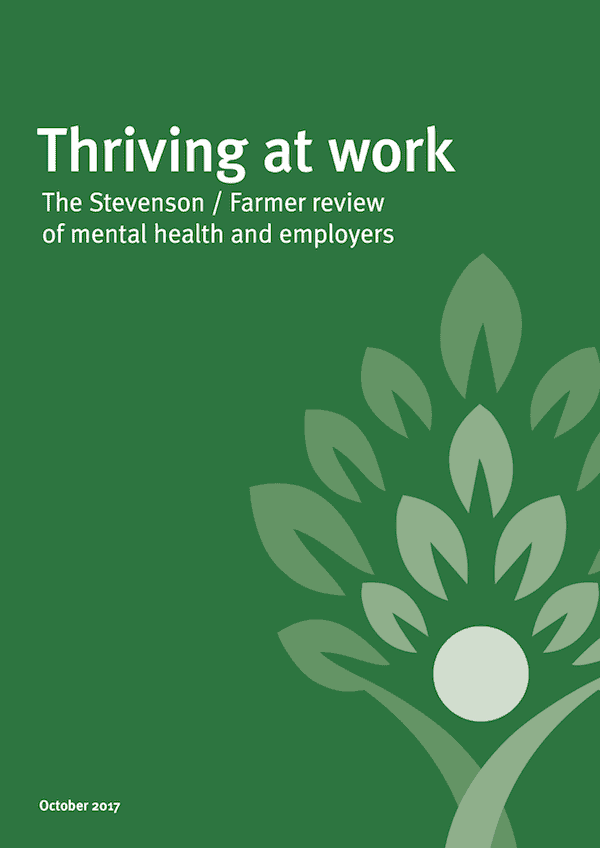It’s a simple question – but according to an independent report out today the answer is a big, fat ‘No’.
The Thriving at Work report, which was commissioned by Theresa May in January, found that up to 300,000 people with long-term mental health problems have to leave their jobs each year. Rather than thriving, staff are quitting their workplace in droves – unable to flourish in an environment where mental health mostly remains a taboo subject.
For many in the workforce, there is a fear of being discriminated against if they speak up – and consequently of being sidelined or marginalised. As Paul Farmer, Mind’s chief executive and co-author of the report, says, ‘Sometimes in organisations people feel themselves excluded as a result of their mental health issues.’ The result is that UK businesses are haemorrhaging staff in their thousands.
And they’re losing out financially big time. According to supporting research by Deloitte, mental health issues impact on employers to the tune of between £33 billion and £42 billion a year (and if you look at the annual cost to the UK economy, the figure comes in at £74-£99 billion). Deloitte’s calculations show that the costs per employee range from £497 to £2,564, depending on the industry and sector.
Those figures have certainly brought out a rallying cry from Theresa May, who said the report’s findings showed ‘we need to take action’. And by ‘we’ she means both the government and employers themselves, who are being urged to commit to six core standards around mental health:-
- create a mental health at work plan
- build mental health awareness by making information and support accessible
- encourage open conversations
- provide good working conditions and ensure employees have a healthy work-life balance
- promote effective people management, with line managers holding regular conversations about health and wellbeing with their staff
- routinely monitor employee mental health
As the report’s other co-author, Dennis Stevenson – a mental health campaigner and former HBOS chair – says: ‘It’s time for every employer to recognise their responsibilities and affect change, so that the UK becomes a world leader in workplace wellbeing for all staff and in supporting people with mental health problems to thrive at work.’
Of course this is going to take time – and for employers to find the right resources to help them become the progressive organisations they need to be. Employers can no longer afford to ignore mental health at work or to pay lip service with a few lunchtime yoga sessions and a head massage thrown in for good measure. It’s time to get serious.
Your People Potential has been serious about mental health in the workplace for a long time. By the way, we used to be called Namaste Culture, but apparently this conjured up visions of chanting and Tantric breathing – the complete antithesis of what we do – so we rebranded. Nothing about what we do is touchy-feely. The bottom line is that we make breakthroughs in employee health, happiness and productivity by helping your people reach their potential.
As it happens, our bespoke courses pretty much cover the six core standards outlined in the Thriving at Work report. We train managers to become more self-aware and communicate better so they can reduce the risk around mental health. We work with individuals, helping them to build resilience. And we coach HR people to create and implement action plans to improve wellbeing. In short, we equip your people to survive and thrive in an increasingly pressured and competitive workplace.
Deloitte’s research found that the return on investment of workplace mental health interventions gave an average ROI of 4:2. So one last time – are you ready for your business to thrive?



